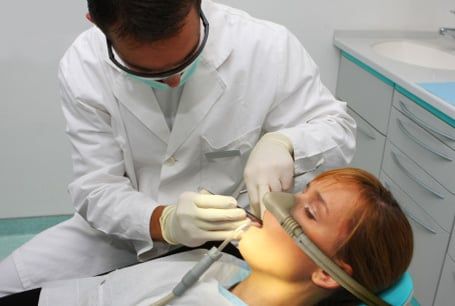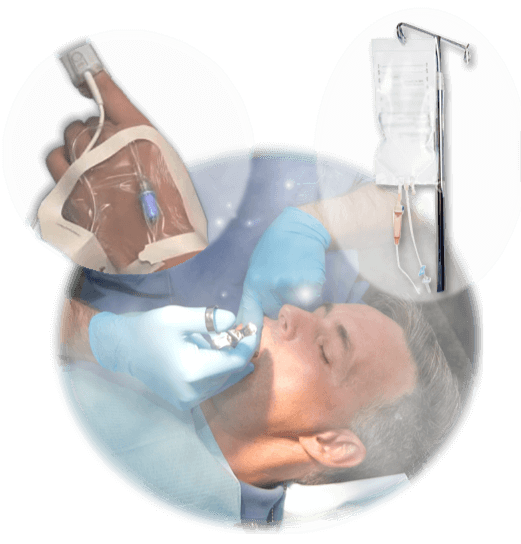Huntington Beach, CA 92648
& Implant Surgery
Sedation Information

Sedation Dentistry: The use of Laughing Gas & Oxygen for Sedation
The calming inhalant known as laughing gas is for patients who are mildly or moderately anxious or nervous. It eases their anxieties so that they can relax and undergo treatment comfortably and safely. The gas is administered by placing a small hood over the patient's nose. As the gas takes effect, the patient becomes relaxed, but is still awake and can communicate. When the gas is turned off, the effects of sedation wear off almost immediately.

Oral Sedation
Patients who are more anxious may need an oral medication that is stronger than nitrous oxide. With oral sedation, the patient may be sleepy but can be aroused and will respond to simple commands. Minor side effects such as nausea or vomiting can occur with some medications. Before a visit in which a patient is to receive oral sedation, he/she will receive instructions about eating and drinking, what to expect and what to watch for after treatment. You will need assistance to get home after sedation.

Oral Sedation FAQs

IV Sedation
*Offered in our office with Dr. Robert Lacrampe
Injection or intravenous (into a vein) methods require more experience to be administered and monitored properly. Injections and intravenous medications should be used only by dentists with extensive training in these techniques.
General anesthesia puts a patient into a deep sleep. He or she is unable to feel pain or to move around. General anesthesia may be recommended if the patient:
- Can't relax or calm down enough for treatment to be performed safely, even with conscious sedation and other behavior management techniques
- Needs oral surgery or other dental treatment that would be difficult for the patient to tolerate while awake
- Needs a lot of dental work that can best be done in one long appointment rather than many shorter visits
- Has a medical, physical or emotional disability that limits his or her ability to understand directions and be treated safely as an outpatient
Some general dentists have received training and a certification in general anesthesia, while others contract with an anesthesiologist. These professionals are trained to deliver the medications and monitor patients during the procedure and handle any complications that may occur.
Schedule An Appointment